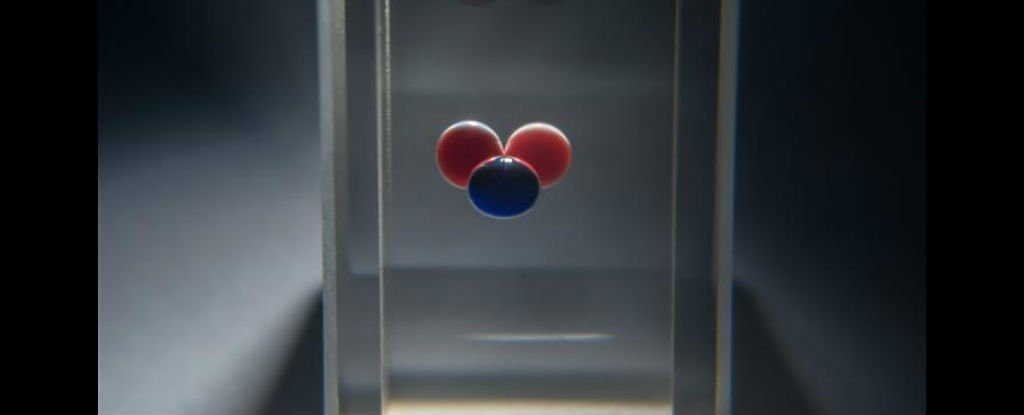For conventional computer operation, information, as binary code, is stored and read through the use of physical methods like electricity in bits, while quantum computing uses ‘qubits’ or quantum bits. But you may not know that now chemistry can also store information.
The chit, a one-bit memory unit made of chemicals, was developed by the researchers of the Institute of Physical Chemistry of the Polish Academy of Sciences (IPC PAS) in Warsaw. Composed of three droplets, the Chit can stores information just like bits and qubits currently do. Chemical reactions occur within the drops which circulate constantly and in regular cycles based on the Belousov-Zhabotinsky reaction, a type of oscillating reaction.
Using two catalysts to help, ferroin, which changes the color, and ruthenium, which causes light sensitivity, every reaction makes the next reagent required for the following reaction, allowing the chemical reaction to continue endlessly.

Because the Chit is entirely chemical, it enables chemical computing and replaces more traditional memory storage like bits. As quantum computing advances, chemical computing offers a whole new option for memory, whether storing, reading, or transferring.
The ability to manipulate and recall information is the basis for much of the technology we use every day, from smartphones to digital file security. From the tech we use to combat global warming to the vehicles, we use to explore the boundaries of space, altering the foundation of this technology will revolutionize computing and the way we store information in ways we can’t even imagine yet.
More News to Read
- Does Nuclear Physics Hold the Key to Finally Unfolding the Standard Model?
- Scientists Propose a New Planetary Object That Could Change Everything
- Getting to Know Black Holes: The Universe’s Best Killers
- Tabby’s “Alien-Megastructures” Star Had Begun to Dim Again
- Uncovering and Understanding Newly-Found Supernovas











